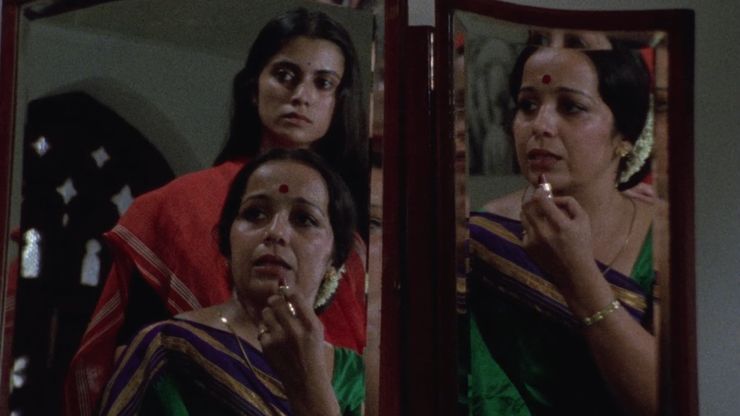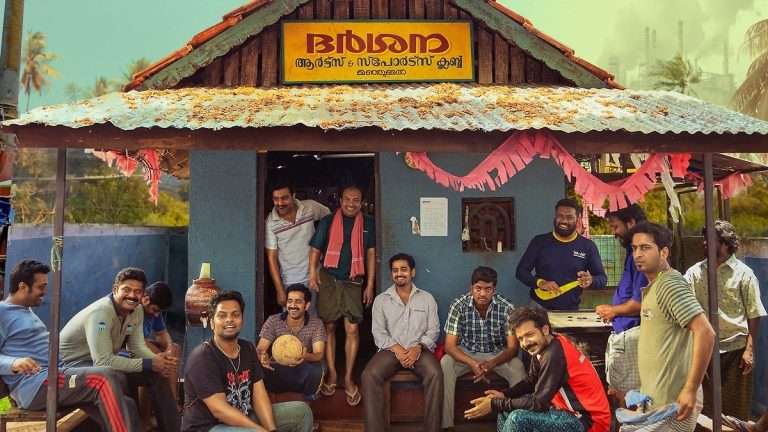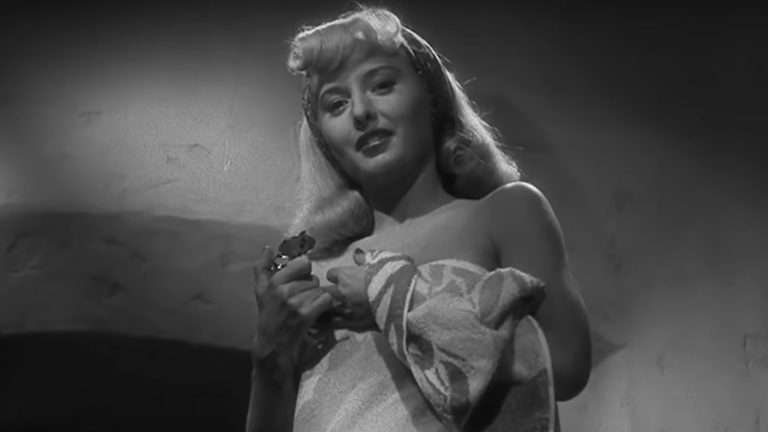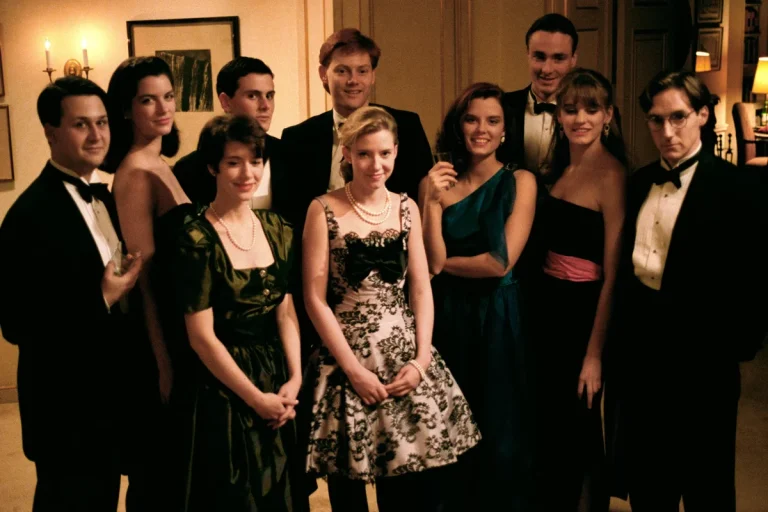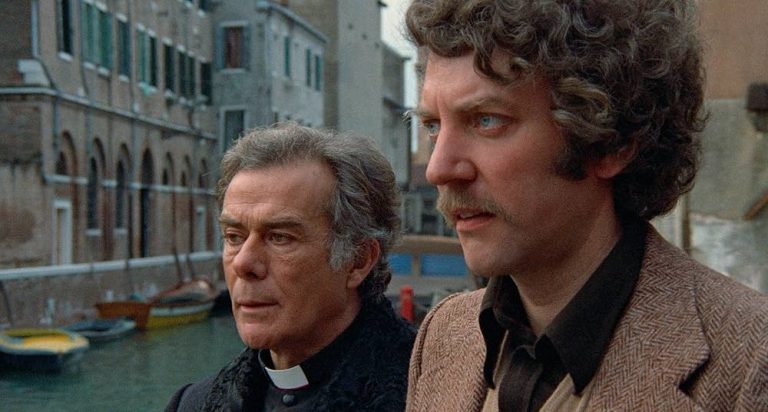“Licorice Pizza” hits right where I live. All stemming from fears of compromise and this image of a teenager bothering an older girl on picture day for a date. An image that evokes a lifetime of personal thrills and affairs. And what if, like Alana [Alana Haim] in the film—who, from what one gathers, is 28—against all of her pragmatic judgment, the girl actually turns up for a date with this annoying kid? “I’m not gonna see you later,’’ she says as the opening sequence comes to a close, and seconds later is casually spanked by a photographer for whom she is working as an assistant.
It gets to her, and suddenly, in maybe a fit of disillusion, the idea that she’s just been asked out by a 15-year-old feels oddly soothing and unlikely to cause injury. In that moment, discretion loses any and all merit, and prying eyes cease to matter entirely. The relationship that follows is an oddity, for sure, but as such, rings much truer to life.
A non-couple—one where the terms are ambiguous but which functions on an emotional logic that’s anything but—buzzing with nervous energy but is achingly vulnerable all the same. It’s the trembling and hot flashes of exposed nerves, and with Anderson being a closet disruptor, even a whiff of immorality—a wonderful stumbling block. The film is a hat tip to that very feeling of getting away with something, with that brief span of madcap passion turned briefly, strangely mutual. As years in one’s life go by, certain folks turn up and leave back profound impressions, and that brief span turns into long-standing ties.
The film’s underpinnings spring from firsthand impressions and are unmistakably personal, yet never tend toward artificial sweetness or being a register for moral inventory. Anderson relays the escapades of his childhood stomping grounds while also standing apart from them—hanging onto memory with tenderness while also keeping it at arm’s length, taking its measure with a contemplative remove, and extracting wisdom during the course. The film has a thing or two to teach other films that wield a comparable superstructure and about life itself. Owing to the specifics of the tale, the coming-of-age here goes off the beaten track, becoming a fiercely private one. Catharsis here might not square [pun intended] well with the strait-laced. Its danger made sublime and the impossible carried out—a characteristic “Licorice Pizza” shares with the very best that the cinema has yielded.
Gary [Cooper Hoffman] is immediately alongside Alana, and the film chronicles the days that follow. Despite its free-spirited whimsy, there’s an existential streak writ large across the film. Even the humor doesn’t offset the characters’ pathos; it foregrounds it. This is a quintessential late-career film, a sort of midlife reflection on the adventures had and loves lost. Without wallowing in sentimentality, the film renders the ability of two people to see each other, be with each other, protect each other, and have a mission to accomplish together each day as the existential sum and substance. Each scene feels soaked with a soggy residue of desire as Anderson keeps delaying the moment of release. The image of Gary and Alana on the waterbed, with his fingers creeping towards her but withholding, embodies the things that make us shy away, and in that moment, yearning becomes its own form of reprieve.
Also, Read – All Paul Thomas Anderson Movies Ranked
Anderson doesn’t fetishize the outer contours of the feeling, or the time. You can’t really make out the strings being pulled. Instead, it’s a portrait of adolescence that carries a certain thoroughness, with exquisite dramatic particulars, while simultaneously exploding those details away in irrepressible outpours of reckless feeling, never compromising on the breathless, even stranger-than-fiction drama bearing on the central pair. Anderson’s excavation of his own feverish experiences and the intertwined lives that gave birth to this movie lends the drama an air of self-revelation, built into a fictitious world without ever being, as often is the case, too much or too little of itself.
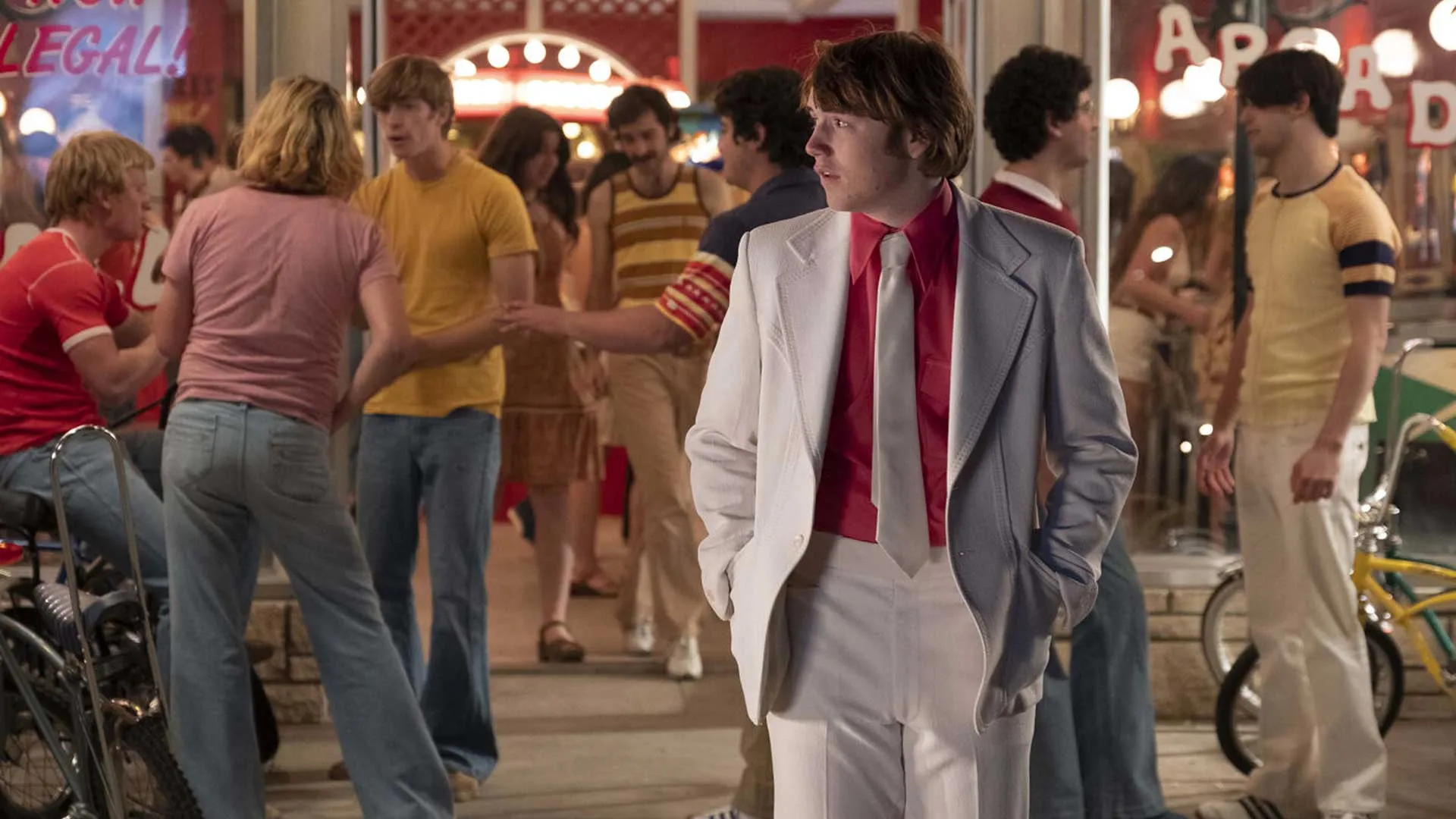
Having said all that, “Licorice Pizza” and I didn’t hit it off right off the bat, but some gravity kept me coming back to it over and over again. A journey I now cleave to dearly. What’s great about your relationship with films is that it’s up in the air all the time, while the film remains a fixed entity. Gradually discovering a kinship with a film is a weird physics. It’s really like discovering yourself all over again—your happy place, pinball palaces and all. It’s the moment when your bond with the film becomes your bond to the world.
For a film of such richness, it is not entirely palatable viewing. It isn’t grandstanding like some of Anderson’s other works, which makes people unfairly characterize it as slight or meandering. It merely surpasses your average plane of conception. Its action, as opposed to adjectives, bears the hallmarks of the aforementioned superstructure while also providing a stringent corrective to the mode. An antidote that defies easy characterization or stock psychological markers. Maybe that’s why I didn’t feel at one with it at first: the hammerings of lesser films—mistaking comfort for virtue.
It was going off the recipe, and I didn’t see what was actually cooking; a polyphonic view of a moment in time, not mere lip service. Alana and Gary are both part of a contextual whole and don’t seem tethered to any grand design. Their roles modulate between romantic interest and business partner, dominant and submissive, gal-pal and surrogate parent. Unlike other brazen auteur types, who are more drawn to portraits of places and people as means to an end, that, at the expense of detail, inflate and stretch or shrink and compress themselves to fit the character and the lockstep procession of the plot.
This is all just a long-winded way of saying that the film, in effect, scratched a latent existential and cinematic itch. It’s the bottomless pit of moments and feelings that couldn’t be transplanted anywhere else, and the pull of them being so strong that you make a movie out of it. It’s the rush that keeps you awake at night, makes you put yourself out there, and shout from the rooftop. A kind of séance where the universe does your job for you, and the film writes itself. “Licorice Pizza” has the candor of a home movie that seems continuous with life offscreen—a record of someone else having the time of their life. All that remains then is the existential heck of vicarious submission and feeling small in its shadow.

